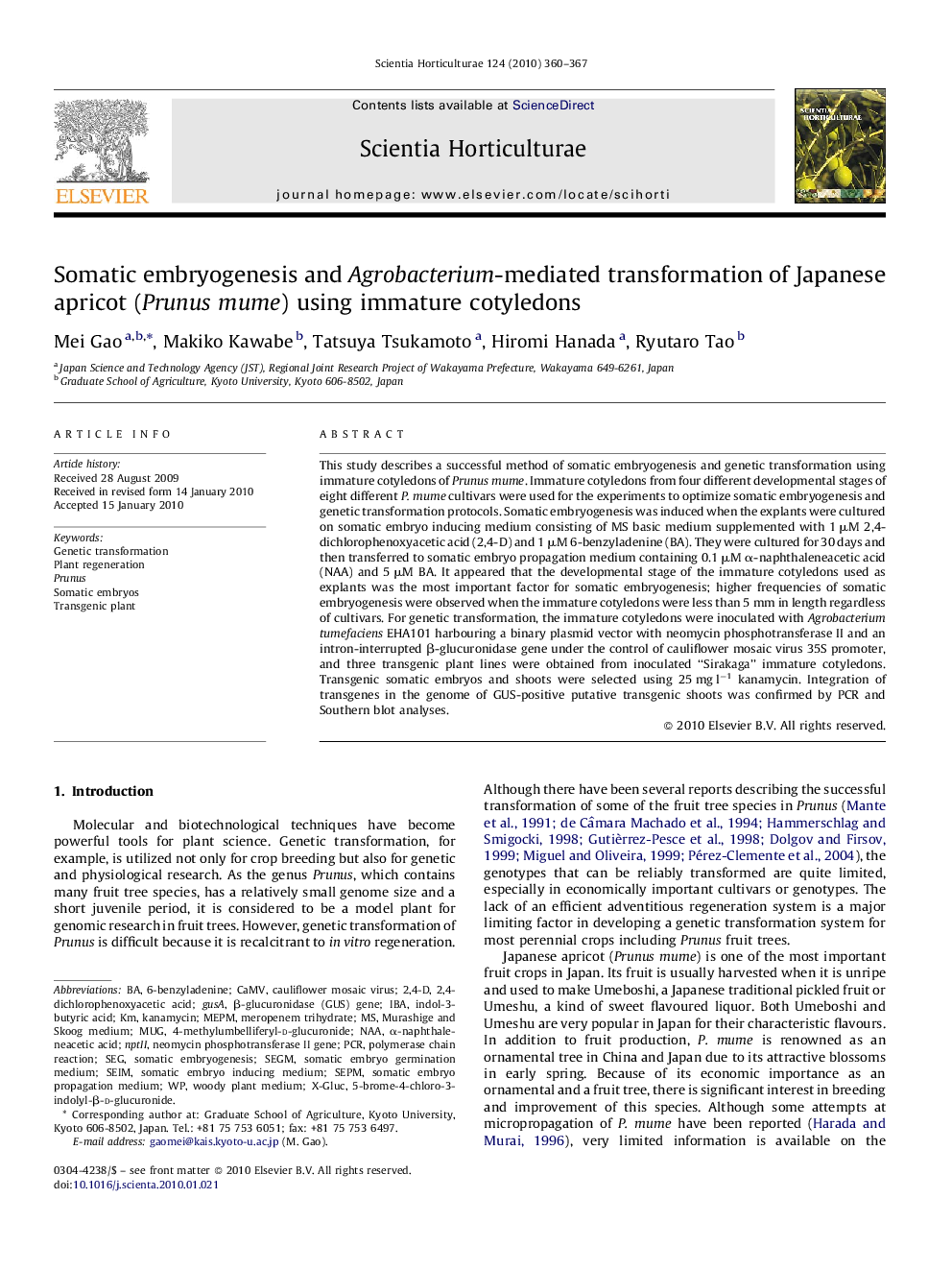| Article ID | Journal | Published Year | Pages | File Type |
|---|---|---|---|---|
| 4568838 | Scientia Horticulturae | 2010 | 8 Pages |
This study describes a successful method of somatic embryogenesis and genetic transformation using immature cotyledons of Prunus mume. Immature cotyledons from four different developmental stages of eight different P. mume cultivars were used for the experiments to optimize somatic embryogenesis and genetic transformation protocols. Somatic embryogenesis was induced when the explants were cultured on somatic embryo inducing medium consisting of MS basic medium supplemented with 1 μM 2,4-dichlorophenoxyacetic acid (2,4-D) and 1 μM 6-benzyladenine (BA). They were cultured for 30 days and then transferred to somatic embryo propagation medium containing 0.1 μM α-naphthaleneacetic acid (NAA) and 5 μM BA. It appeared that the developmental stage of the immature cotyledons used as explants was the most important factor for somatic embryogenesis; higher frequencies of somatic embryogenesis were observed when the immature cotyledons were less than 5 mm in length regardless of cultivars. For genetic transformation, the immature cotyledons were inoculated with Agrobacterium tumefaciens EHA101 harbouring a binary plasmid vector with neomycin phosphotransferase II and an intron-interrupted β-glucuronidase gene under the control of cauliflower mosaic virus 35S promoter, and three transgenic plant lines were obtained from inoculated “Sirakaga” immature cotyledons. Transgenic somatic embryos and shoots were selected using 25 mg l−1 kanamycin. Integration of transgenes in the genome of GUS-positive putative transgenic shoots was confirmed by PCR and Southern blot analyses.
